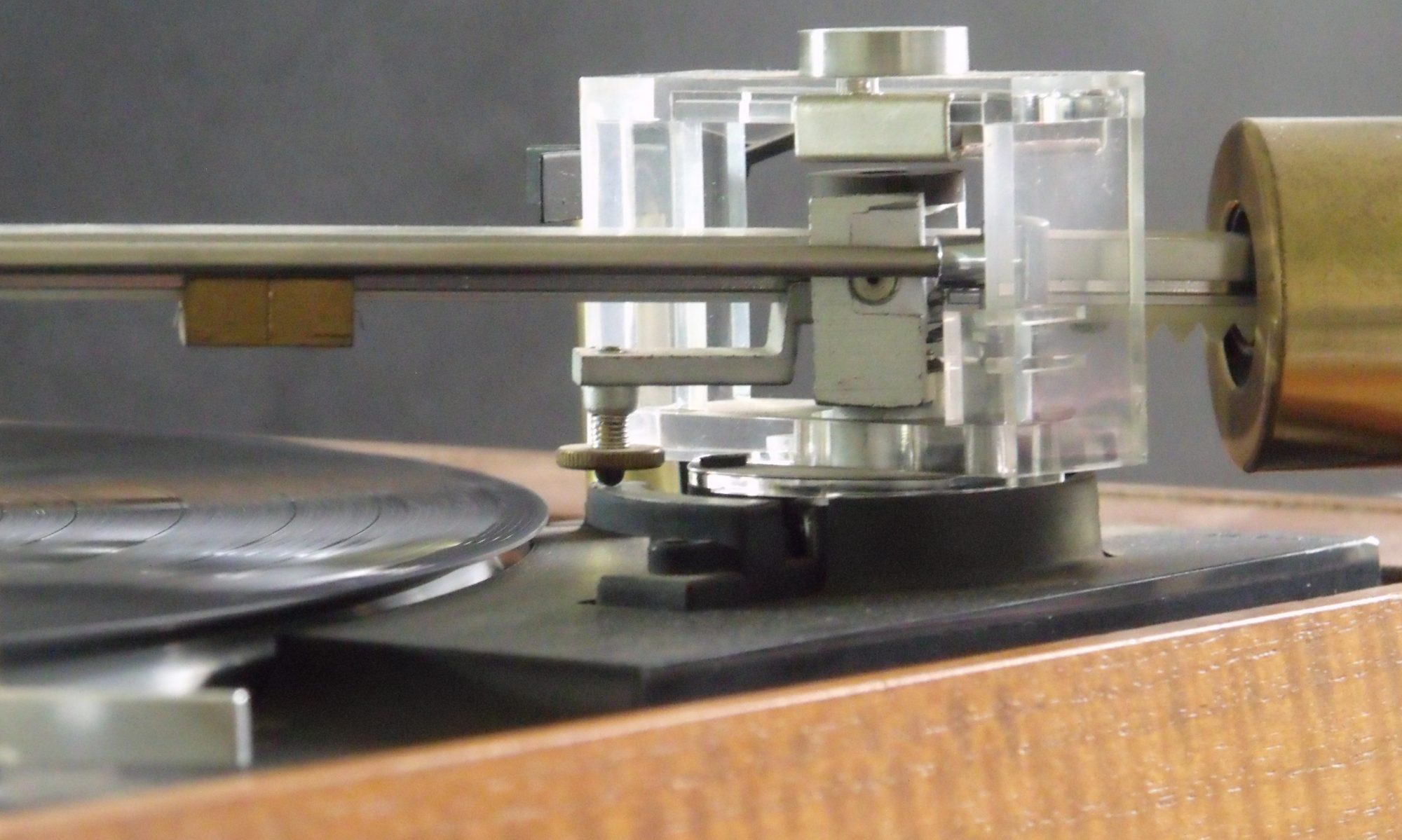The Garrard Zero 100 is innovative, gorgeous to look at and absolutely bonkers. My love of these old British made turntables started three years ago when I picked up an example of the original Zero 100 at a boot sale.
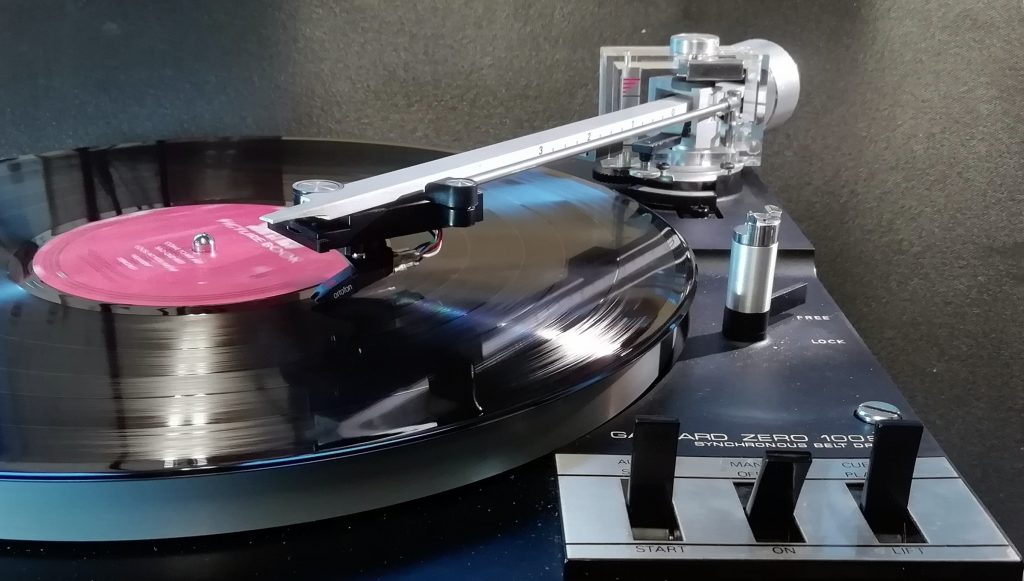
Recently I treated myself to a fine example of the later Zero 100SB model. After an eventful restoration, it’s time to appreciate it.
The original Zero 100 was a full auto changer, capable of playing multiple records in a stack. I only owned it for long enough to get it working before passing it on to a young friend who was taking his first steps in vinyl.
The SB model is a development of the original which came out a couple of years later. The “S” suffix indicates single play. The ability to play a stack of records is forfeited. This results in a simpler, though still complicated, mechanism. The “B” signifies belt drive. The original was idler drive. With the belt the ability to adjust speed is lost, as is the strobe light, but Garrard added a really heavy patter. The original gold and cream colour scheme was changed to silver and black, in step with the fashion of the time.
It’s rare to find turntable which is automatic in operation while also delivering High Fidelity and being gentle with your records. This is a key feature of the zero 100 series. The headline was the arm of course, but there is more to it than that. The Synchro-Lab motor offered unrivaled torque and speed stability. Garrard also had a novel approach to bias compensation and include a play counter.
The physics of play is such that there is a natural tendency for the arm to be pulled towards the center of the turntable. This can cause distortion and a channel imbalance. Most HiFi turntables arrange for a small, adjustable, opposing force to be applied to counter this. Common techniques to achieve this compensation include springs, weights and even lengths of thread. Garrard came up with magnetic bias compensation. This had the bonus of being none contact, so introducing no additional friction.
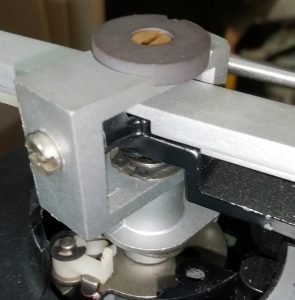
With the surround removed we can see a circular magnet on the top of the arm gimbal. This rotates with the arm as the record plays. If another magnet is brought near, then it will exert a force on this one. If the alignment is correct then that force will counter the natural tendency of the arm to pull towards the middle of the turntable.
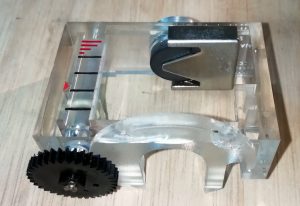
The gimbal surround carries just such a magnet. When assembled the two magnets are in close proximity. Their interaction creates the desired anti-skate force.
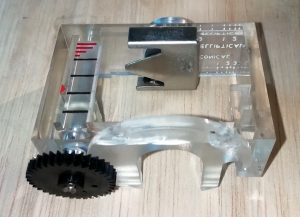
Adjustment of the force is achieved with a metal shield between the magnets. By moving the shield the correct amount of compensation can be set. Here we see the shield mostly covering the magnet to achieve minimal force. The previous picture shows the shield in position for maximum force. Most of the magnet is exposed. Simples.
Another innovation built into the gimbal surround is the play counter. It is a truth universally acknowledged that a single stylus of whatever expense is in need of replacement before it wears out. The challenge is knowing when that time is. Garrard help us here with this device
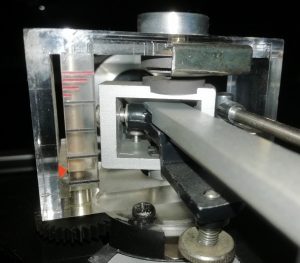
The red arrow on the left points between the first two black marks on the scale. Each black mark corresponds to 400 record sides played. At about 20 minutes a play that says this stylus has had about 60 hours of use since the counter was reset. That’s about right.
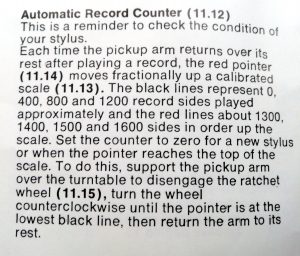
It works because the pointer is on a threaded bar which is turned by the ratchet wheel visible at the bottom. This ratchet engages with the arm base every time the arm returns to rest and turns one tooth. The pointer therefore moves very slowly up the calibrated scale.
The star of the show for the Zero 100 is the “Zero Error” Arm. This keeps the stylus in line with the record groove as the arm moves across the record. A conventional arm has the stylus at an angle to the groove at all but two point on the radius. The Zero 100 achieves this by changing the angle of the head shell as the arm moves across the record.
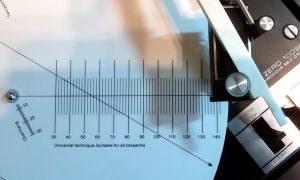
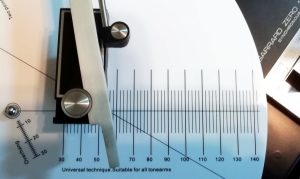
These pictures illustrate the effect with an alignment protractor.
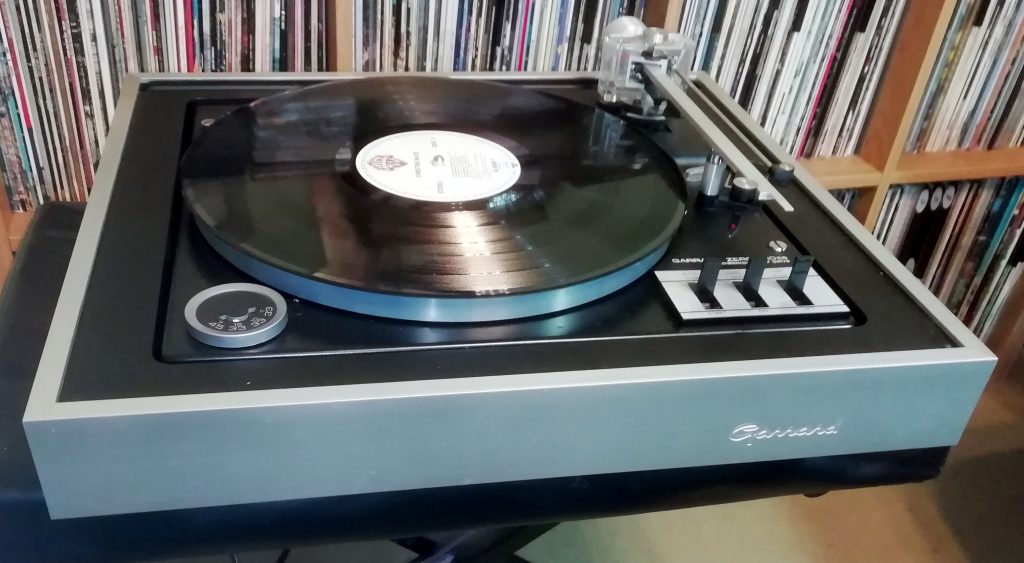
So here it is completely assembled, sans the perspex lid, which I do have by the way. I have been using this for several weeks now and I have to admit I do like the convenience of the fully automatic operation. Next step is to source a suitable replacement cartridge for the Ortofon OM 5E that came with it. because, would you believe, I have no idea how much wear is on the stylus !
